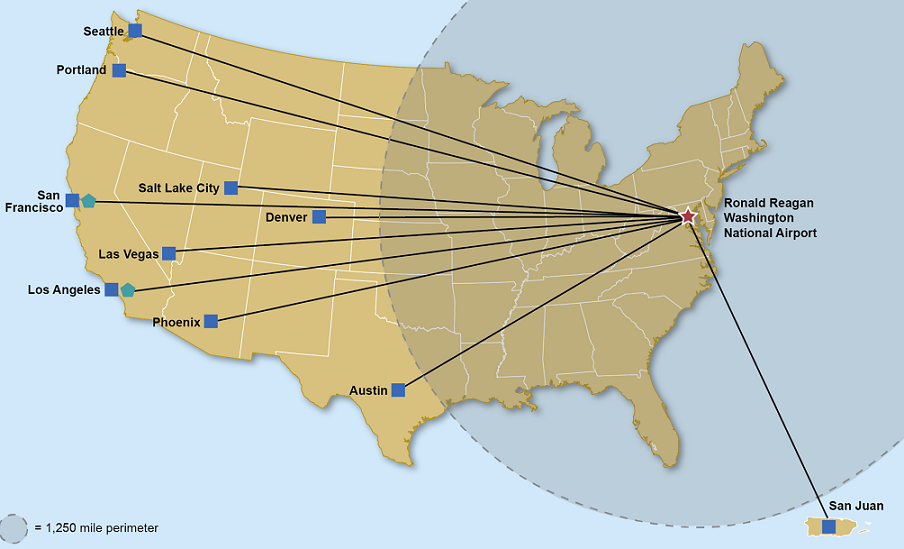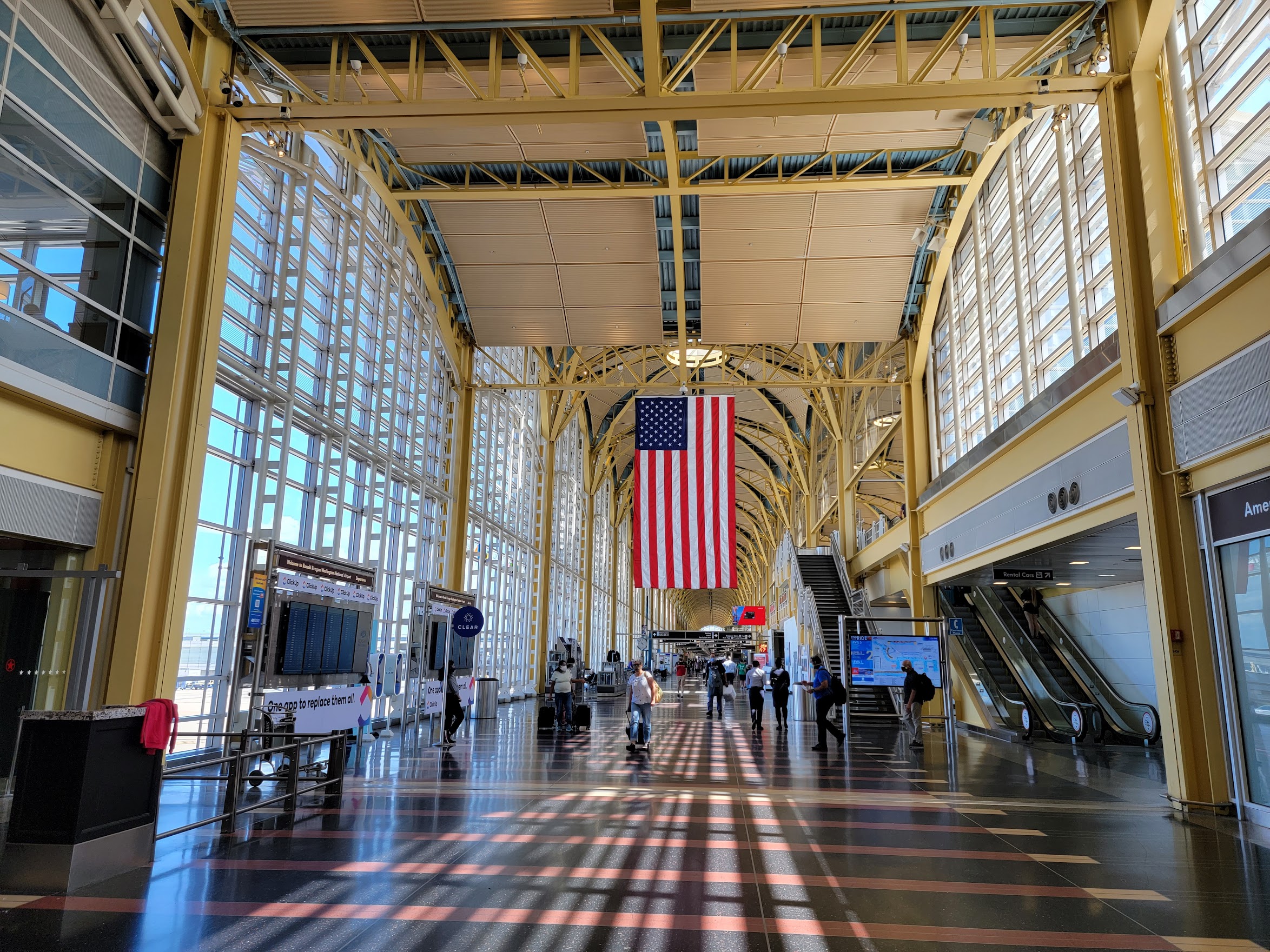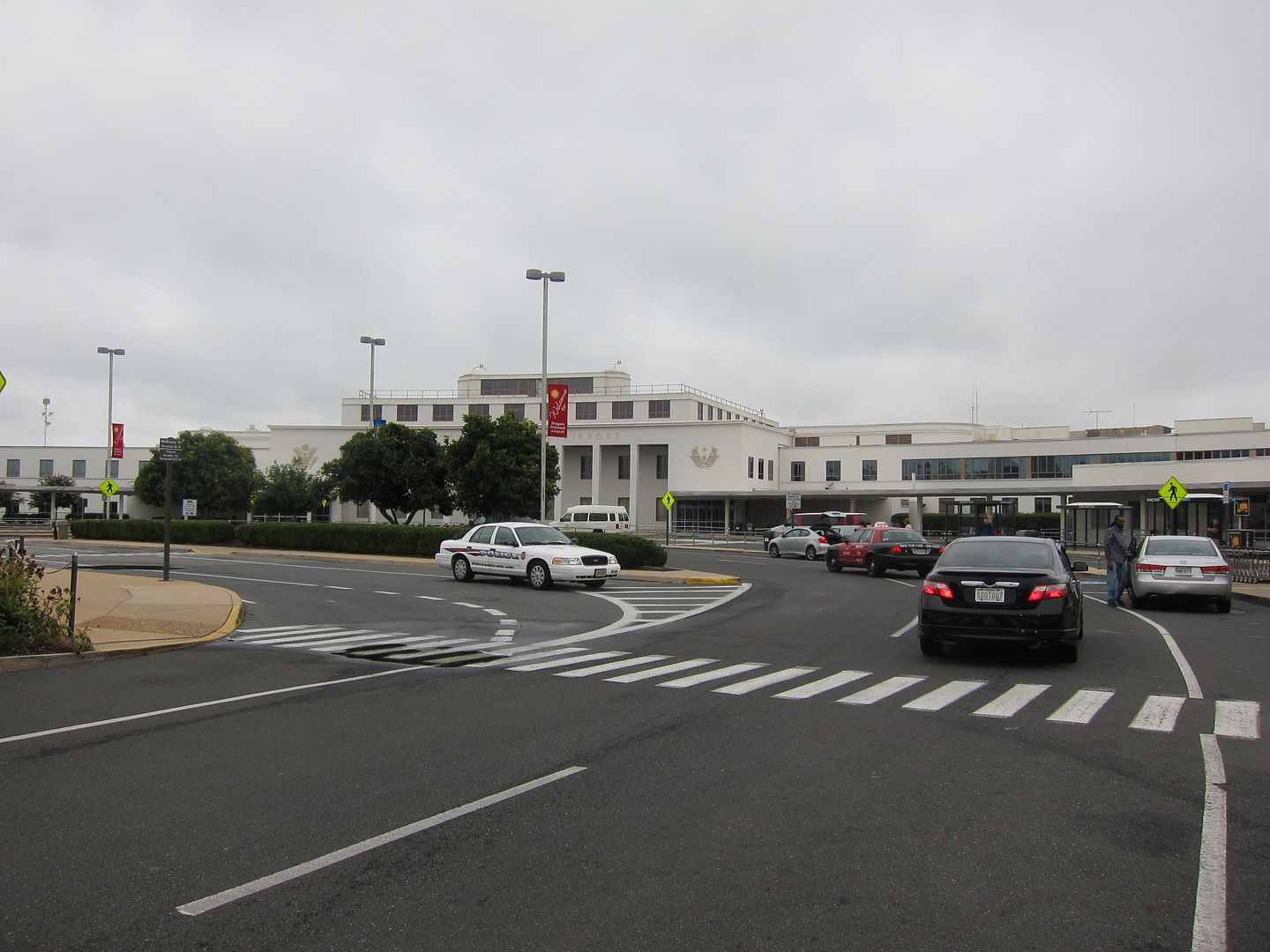Flights from Washington’s National airport are limited to 1,250 miles unless they are one of a handful of exception flights provided for in legislation and handed out by the Department of Transportation. A beyond perimeter flight is valuable. Southwest Airlines, for instance, has the only legally-permitted flight between National airport and Austin. No other airline is allowed to compete on that route. Other options either involve connections or going to Dulles.

United Airlines has a hub at Washington Dulles. They don’t want to allow more flights that would compete out of Washington’s National airport. They especially don’t want more flights from National over 1,250 miles – where Dulles airport, which they dominate, has a near-monopoly. So they lobby hard to prevent more and better service from National (also known as Reagan National).
Meanwhile, American Airlines dominates at National airport, so they’re wary of expansion that would allow other airlines to gain an increased foothold.
American Airlines is the largest carrier at National with approximately 57% of 5-day or more slots as of 2022, compared to about 12% for Delta and 9% each for United and Southwest. (Delta used to hold more slots but traded those plus cash to US Airways for LaGuardia slots.)
| Airline | Weekday Slot Pairs | % Of Slots | ||
| Air Canada | 16 | 2% | ||
| Alaska | 18 | 2% | ||
| American | 503 | 57% | ||
| Delta | 106 | 12% | ||
| Frontier | 6 | 1% | ||
| JetBlue | 60 | 7% | ||
| Republic | 8 | 1% | ||
| Southwest | 82 | 9% | ||
| United | 82 | 9% | ||
Passengers are stuck in the middle of intense lobbying.
- Ex-politicians get paid to lobby and to be the face of each airline’s concerns. Current politicians play their interests, too. For instance local leaders worry about United pulling out of Dulles (the hub has seemed on the chopping block for over 20 years) or scaling back there. It’s why they’ve shifted hundreds of millions of dollars from National airport to Dulles to keep United’s costs lowers. They’ve even been conspiring with United to impose fines on airlines that use new slots if those are granted by Congress.
- Local activists are afraid of noise (a handful of people, most of whom moved nearby long after the airport was up and running) even though modern planes are far quieter than those that flew when capacity restrictions were put in place. And there are environmental activists who just don’t like air travel, even when the net flying doesn’t change just where it happens to and from.
Delta Air Lines launched a lobbying effort to get new beyond-perimeter slots (flights over 1,250 miles) last spring included by Congress in its FAA budget reauthorization.
Here’s Delta’s latest ad, put out by their front group Capital Access Alliance:
After tremendous pushback they’ve scaled back their ask a lot (which muted American’s opposition), but the effort continues.
- These are net new slots, so it doesn’t mean fewer flights to existing cities
- The airport is underutilized for parts of the day (7am – 8:30am; 11am – 1:30pm; 9pm and later). Additional slots should be offered during these times.
- The airport has among the best on-time performance in the country, outperforming even Detroit, which shows it isn’t overscheduled.
- When slots were parceled out there was an allowance for private jet movements, which no longer happen to any meaningful degree due to restrictions put in place after 9/11. The airport was intended decades ago to have more flights than it does today.

Washington National Airport, National Hall
Delta was successful in messaging against the American Airlines-JetBlue partnership. They managed to snare the most slots at Tokyo Haneda airport. They even got billions in pandemic subsidies not to lay off employees that they weren’t furloughing anyway. They’re an effective lobbying machine.
However they didn’t manage to get the government to give them one of those Haneda slots to do with it whatever it pleased instead of operating out of Portland as it promised. They didn’t convince the Obama or Trump administrations to limit flights to the U.S. by Qatar, Emirates and Etihad (which would have violated treaty obligations). They managed to delay but not end Import-Export Bank subsidies for foreign airlines to purchase Boeing aircraft. So you can’t just bet on Delta getting what it wants from the government.

Washington National Airport Historic Terminal
Senator Ted Cruz (R-TX) and Commerce Committee Chair Senator Maria Cantwell (D-WA) have compromised on legislation that would allow 4 new beyond perimeter slots. Notably, both represent states with limited air service to the airport because of the perimeter rule (Dallas and Houston are within the perimeter, San Antonio and Austin are not). Senator Cantwell’s home state also has a Delta hub, meanwhile Cruz – himself a MileagePlus elite – has crossed swords politically with United over vaccine mandates and other left-leaning politics.
In this case more service out of National airport, especially to destinations that cannot currently legally have service, would benefit consumers from both a convenience and price perspective. So while Delta’s campaign serves its own interest (it always does) it happens to coincide with consumer interests.


Thank you for shedding some light on this ridiculous, unscientific perimeter rule supported by the sweatheart dealing between pretty young lobbying interns and pretty young Hill interns. It’s good for Pentagon Generals and such; but, not so good for the general public. We leisure travelers, who pay out of pocket in cash or points, get a raw deal again for 2024.
Airlines that want a beyond perimeter flight should try to run around the rule by doing what Delta did in its Portland Tokyo flight, raise prices. For example, if Delta wanted to fly SEA-DCA then fly SEA-DTW-DCA but price that SEA-DTW flight at $10,000 and DTW-DCA at $10,000. It would just be that specific flight. If there are tickets sold, raise the price to $20,000. When there are no tickets sold then bypass the stop or make a touch and go landing.
Didnt see anything new or uncovered
As someone whose home airport is DCA, I loved reading this, thanks. (And for the same reason, I love that you call it National. Keep fighting the good fight!) We are frequent travelers but normally have no peek behind the scenes to see WHY the flight offerings look the way they look. Always interesting to see how the sausage gets made.
DCA is my home airport and it’s continually a mess. Crowding in the gate areas is as bad as ever especially in B where Delta operates alongside American, Alaska and JetBlue. The traffic getting to the airport is so bad it consistently backs up onto route 1 and the GW parkway. I’ve even resorted to risking my personal safety and taking Metro. I don’t particularly care about the perimeter rule but there should absolutely not be any change to the flight cap.
I really do not like that AA cannot operate DCA-AUS. Austin is the state capital, also a tech hub like NoVa, and not even 50 mi outside of the perimeter. It really seems like a justifiable exemption.
@Michael – you’d literally seen the new Capital Access Alliance commercial that just debuted already? Impressive!
Keep as it is–Dulles is the future. -close National
Instead of handing even more favoritism to the behemoth that is Delta, why not hand Alaska some Seattle slots?
Gary – good summary of the politics related to this issue. And for people that think this is unique they should research the Wright Amendment and Love Field. That was truly an anti-consumer cluster.
@Gary I am confused why you say you’re stuck going to Dulles, when BWI is just as close to DC. I suspect that Southwest is nearly as pesky as United about this, given their BWI dominance.
I don’t pretend to understand the politics but as a regular consumer I still think we’re already spoiled as is in the DMV to have two major airports. But in a vacuum wouldn’t complain if our options expanded even more. If only they made an airside connector between terminals at DCA….heck, an underground walking connector from T/A/B/Z to C/D at IAD while they’re at it would be great too ha
@Adam L If you had a personal experience with the Metro I’m very sorry. Not judging your comment in any way as I know as well as anyone bad things can happen any place any time but as a happy rider since I was a kid I’m curious to hear why you think the Metro is so dangerous.
@Alex Hmm depends on where specifically of course but IAD and DCA in general are much closer to the most populated areas in the DMV. To get to BWI would be a roughly 25-40% longer drive and the best public transportation is either commuter bus or Amtrak
@Alex – BWI is managed separately, and not an option most of the day from Northern Virginia or even downtown given traffic
@Gary @L Worse option for the VA/southern side of DC, better option for the MD/northern side of DC. I agree the fact it’s managed separately matters in who makes the decision, but doesn’t change the incentives of Southwest here.